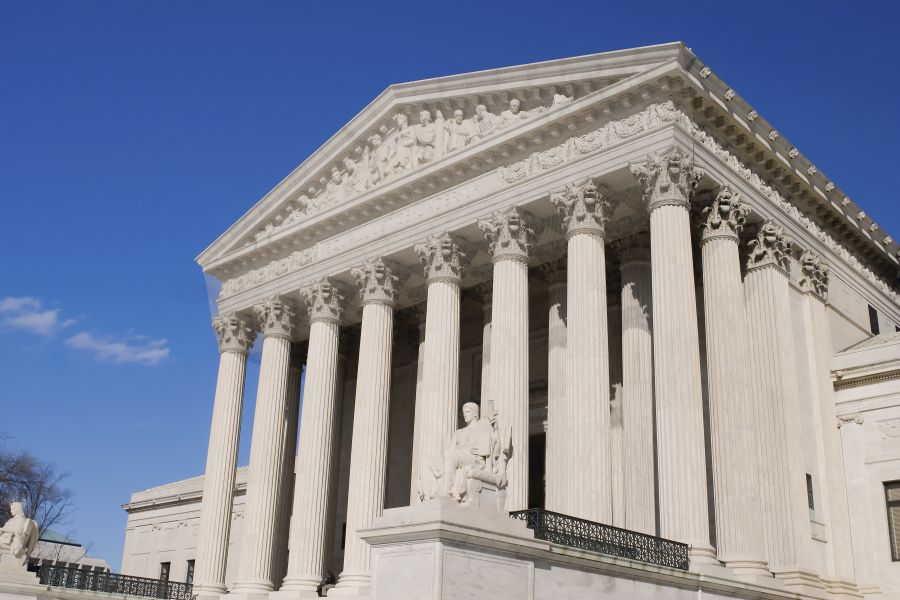PERSPECTIVE: News outlets need caution in offering a ‘fresh start’
First Five by the Freedom Forum Institute
May 27, 2021
GENE POLICINSKI
Freedom Forum Senior Fellow for the First Amendment
Download Word doc here
Who wouldn’t want to get a “fresh start?”
Our life record has always been on display in some fashion — if someone had the time and skills to pore through official files in the county courthouse or newspaper archives.
The digital era has made more information about more people available more easily than ever before. A recent search for “how easy is it to search a person’s history?” turned up 114 million hits on how to find criminal histories, financial information and any mention in the news.
There’s an undeniable lure to the idea of erasing from public view an embarrassing moment, a long-ago minor crime or a past accusation later dropped or cleared.
Now a growing number of news outlets are also aiming to right past wrongs or acknowledge that the original reasons to publish had ranged from casual indifference to habit to outright racial bias.
RIGHT TO BE FORGOTTEN
“Whether we recognized it or not, we played a role in holding back those who tried to move on from their mistakes,” the Bangor (Maine) Daily News posted about its “right to be forgotten” policy, one of many now offering avenues to essentially “unpublish” identifying information, news reports or photos.
The Atlanta Journal-Constitution program is reportedly aimed mostly at people whose official records have been legally expunged. The Boston Globe “Fresh Start” policy includes updating past coverage and changing how accessible stories are in search engines. Among items that could be wiped: Minor crimes long in the past, as well as stories and photos “that involve potentially embarrassing, non-criminal behavior.”
Stories remain on the Bangor news site, searchable only there — not on Google or other outside search engines. “Wherever possible, we will remove the original social media posts promoting the stories. In other words, the average person doing a Google search will not find out you were arrested for marijuana possession at a gravel pit party in 2004.”
RIGHTING PAST WRONGS
Some newsrooms have noted that with crime stories, prejudice and bias — at news organizations and in the criminal justice system — produced thousands of stories over the years unfairly focused on people of color and the poor. The Globe editors said, “The movement for racial justice has touched every part of society, including our newsroom, and we see this as a step we can take to improve what we do.”
WHERE IT GETS COMPLICATED
If there are good reasons for news outlets to consider “fresh start” programs, there are good reasons to be cautious too.
There are the close calls: What to do with people who took plea deals — declaring their guilt in a court — given that plea offers are many times rife with underlying racial bias and social and economic pressures? Can non-judicial organizations properly determine what took place perhaps decades earlier?
Then there is the clearly established fact that many of us already don’t trust a free press to tell the truth. Inevitably, skeptics will see removal of past negative information as further evidence of a suspect relationship with truth. Without public support, the First Amendment protections for that press can be decimated by lawmakers eager to dispense with critics and watchdogs.
These new policies could instead do more to restore public confidence in the press by openly declaring the criteria for reviewing requests, making the decision process a transparent one and having a diverse panel or group make a final decision.
Donald W. Reynolds Journalism Institute Fellow Deborah L. Dwyer and an advisory group have developed a website to assist newsrooms with addressing past practices, managing current “unpublishing” requests and setting polices for the future. More than 50 news operation policies are noted on the site.
WHAT’S NEXT?
Perhaps the best course is to acknowledge the failings, whatever the cause, of journalism that reflected the bias of the times, while doing a better job going forward — not just reporting the immediate elements of crime, but the aftermath: Was the arrest dropped, was a conviction obtained or, as we have seen in the new attention being paid to police-related violence, are there patterns in enforcement that insult justice or support it?
As Globe Senior Assistant Managing Editor Greg Lee Jr., in an April discussion sponsored by the Reynolds Institute and the News Leaders Association, said, “At the end of the day, we’re just trying to make the right decision based on a case by case and making sure that anyone who’s involved is treated properly.”
You can reach Gene Policinski at gpolicinski@freedomforum.org.









